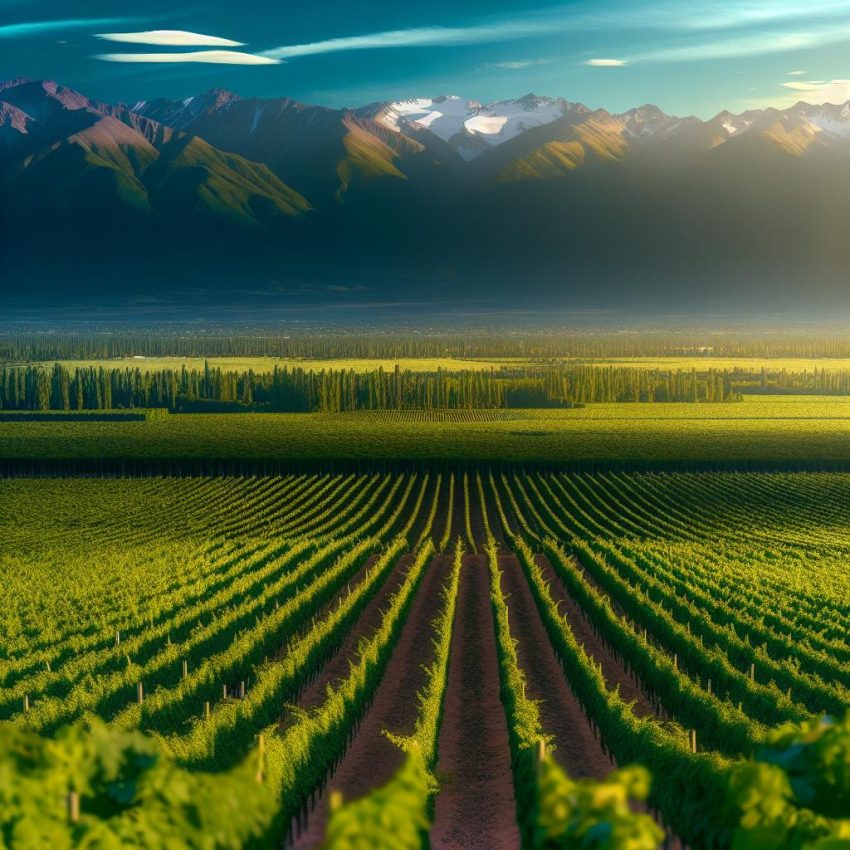Overview of Mendoza Wine Region
The Mendoza Wine Region, nestled in Argentina, is celebrated globally for its superior viticulture and winemaking. Located at the base of the Andes Mountains, this region enjoys an exceptional combination of geographical and climatic elements that support the creation of high-quality wines. Understanding the attributes of this unique region provides insight into why Mendoza is at the forefront of the global wine industry.
Geography and Climate
Mendoza lies at an elevation ranging from approximately 2,493 to 3,609 feet (760 to 1,100 meters) above sea level, a factor that is pivotal to its winemaking excellence. The high altitude creates a vast diurnal temperature range, critical for retaining acidity and enhancing the flavor profile of grapes. With an abundance of sunshine and low humidity levels, Mendoza presents an optimal environment for vineyards. These climatic conditions naturally minimize the threat posed by pests and diseases, ensuring that the vineyards thrive.
The Andes Mountains do not simply offer a breathtaking backdrop; they play an influential role in shaping the climate of the region. Acting as a shield, the Andes protect Mendoza from the humid winds of the Pacific Ocean. This defense mechanism results in Mendoza’s distinct semi-arid desert climate. Consequently, irrigation becomes essential, traditionally carried out using snowmelt from the Andes, which sustains the vineyards throughout the growing season.
Main Wine Varietals
While Mendoza’s varietal diversity is commendable, it is especially recognized for Malbec. Though originally hailing from France, Malbec has found a hospitable new environment in Mendoza where the unique terroir accentuates its rich, fruity qualities. Mendoza’s Malbec is renowned for its bold flavors and deep color, which distinguishes it on the global stage.
Among other important varietals cultivated in Mendoza are:
Cabernet Sauvignon: This varietal is distinguished by its robust structure and profound depth, producing wines that embody strength and complexity.
Chardonnay: Known for its crisp acidity and pronounced citrus notes, Chardonnay from Mendoza is favored for its refreshing characteristics and adaptability to both unoaked and oaked styles.
Tempranillo: Famous for its versatility, Tempranillo in Mendoza is capable of producing both vibrant, youthful wines and complex, aged varieties, offering a broad spectrum of tasting experiences.
Wine Tourism in Mendoza
The allure of Mendoza extends beyond its vineyards to become a sought-after destination for wine tourism. The scenic landscapes combined with meticulously organized wine routes draw visitors from around the world. Whether interested in small family wineries or large entities with international acclaim, Mendoza presents a wide array of options.
Most wineries open their doors for guided tours and tastings, providing insights into the intricate wine production process. Visitors engage directly with the winemaking culture and taste the passion poured into every bottle. For those contemplating a visit, resources like Wine Tourism offer detailed information on tours and vineyards, enhancing the planning experience.
The correlation between Mendoza’s cultural richness and its culinary delights further enhances its appeal as a travel destination. Traditional Argentine cuisine paired with local wines creates an unforgettable gourmet experience that captivates the senses.
Conclusion
The Mendoza Wine Region distinguishes itself through its awe-inspiring vineyards and optimal growing conditions, coupled with a commitment to producing some of the world’s finest wines. Whether a seasoned wine connoisseur or a casual enthusiast, Mendoza promises a cultural and culinary journey that is certain to delight. Its contribution to the global wine scene is undeniable, reflecting a dedication to excellence and tradition that continues to define its winemaking heritage.
Exploring Mendoza not only offers insight into the art of viticulture but also provides a genuine experience of Argentine culture and hospitality. As visitors traverse the vineyards and savor the wines, they become part of a world that harmonizes nature, craft, and tradition—a testimony to Mendoza’s lasting legacy in the world of wine.

